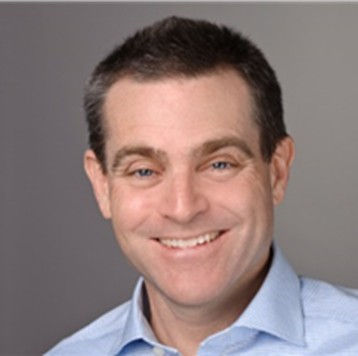Shifting the Power: A Conversation with Jen Bokoff of the Disability Rights Fund
- Ron Krit
- Nov 12, 2025
- 4 min read

Jen Bokoff is the kind of person who sparks movement. She’s a connector, agitator (the good kind), idea mover and strategist.
As Director of Development for the Disability Rights Fund (DRF) and its sister organization, the Disability Rights Advocacy Fund, Jen raises dollars to help the world become more inclusive.
DRF provides grants and supports advocacy and peer learning for Organizations of Persons with Disabilities (OPDs) in low- and middle-income countries, especially in the Global South, where disability communities have historically been excluded from funding and legal protections.
If you’re wondering what the Global South means (as I was), it refers to developing countries, primarily in Africa, Asia, Latin America, and Oceania. They are often shaped by higher poverty rates and histories of colonialism.
The approach is simple and bold:
1️⃣ Invest in those with lived experience
2️⃣ Follow their lead
3️⃣ Watch transformation happen
And the results? They speak for themselves:
✅ $55M+ moved to disability-led organizations since 2008
✅ 450+ grantee partners across 40 countries
✅ 400+ national and local advocacy wins advancing disability-inclusive policy, laws, and programs
As Jen reminded me, “Disability is part of the human experience. Disability rights are everyone’s rights.”
Fundraising as Donor Advocacy
For disability rights, especially with a human rights lens, fundraising starts with education. Most donors haven’t yet connected disability to the causes they already support like education, climate resilience, gender justice, and democracy.
That’s where Jen comes in.
She joked, “I’m a bad fundraiser. I don’t go into meetings with a number or expectation of a gift.”
Instead, she leads with curiosity and asks the question others miss, “We’ve been talking about inclusion — why hasn’t anyone mentioned disability?”
It’s not a pitch; it’s perspective and human-to-human clarity.
Jen may leave without a gift, but always with a new understanding, a future ally, or introduction. Jen commented, “I can’t ask someone for money until they understand the cause. And even if they say no, I usually gain a connection. And a no now could be a yes in the future.”
Her philosophy is rooted in abundance, “We’re unlocking resources for a movement — not just for our organization.”
What Shifting Power Looks Like
I asked Jen for a win that stands out. She didn’t hesitate.
In Indonesia, activists with disabilities partnered with women’s rights organizations to fight for a major elimination of sexual violence bill. The early version of the bill allowed for forced sterilization of women with intellectual disabilities and women with psychosocial disabilities.
If you want to read more, check out this short case study.
DRF supported the coalition’s work:
Helping to review language,
Convening partners, and
Supporting policymaker connections
The result:
✅ The harmful language was removed
✅ The bill passed
✅ Protections improved for all women
Jen shared, “Advocacy wins don’t happen overnight. But when you trust and follow local leadership, lasting change is possible.”
It took years of persistence, collaboration, and community-led strategy. A perfect example of shifting power.
Challenges and Opportunities
Jen came to DRF after working at Candid, leading insights about philanthropic best practices and analyzing global funding data. What she saw was shocking:
“Rights-based funding for other marginalized communities was slowly going up, but disability funding was going down.”
Few funders prioritize disability. Even fewer use a human rights approach.
But Jen sees possibility: “Instead of creating siloed disability portfolios, funders can start by making what they already fund more inclusive.”
Not new programs, better programs.
Micro-Changes Lead to Macro-Changes
Large donations are powerful and so are small actions.
Jen learned from a colleague who uses a screen reader and Braille keyboard, how small changes in document design affect accessibility. Jen said, “I didn’t know the ins and outs of screen reader technology. Seeing it in use helped me better understand how small changes, like using header styles, make things easier.”
Inspired by Jen, here are five simple accessibility habits anyone can adopt:
Turn on auto-captions in virtual meetings: https://support.zoom.com/hc/en/article?id=zm_kb&sysparm_article=KB0058810
Use real headings and styles in documents and online:
Add alt text for images: https://alt-text-as-poetry.net/
Share materials in advance
Offer multiple ways to participate (speak, chat, follow-up)
As she put it, “Accessibility isn’t abstract, it’s a practice.”
The Call to Action
We are living through mass-disabling events:
• Wars
• Climate disasters
• A pandemic
Needs are rising and resources are shrinking.
Here are a few ways we can all help:
Funders → Integrate disability into portfolios you already care about
Program staff → Intentionally consult with and do outreach to disability-led organizations
Grants management professionals and tech platformsà design with accessibility as essential from the start
Connectors → Share introductions generously
Leaders → Listen to disabled leadership
Jen concluded, “Shifting power isn’t a slogan. It’s a series of everyday choices that say:You belong. You lead. We’re with you.”
Want to Learn More?
Learn more about the Disability Rights Fund and how you can shift the power:
Website:🔗 https://www.disabilityrightsfund.org/
________________________________________________________________________
I help nonprofits raise more money through education, coaching, and strategic planning. I also lead high-impact professional development, coaching programs, and retreats for companies of all sizes. If you’re ready to strengthen your fundraising strategy, turn board members into advocates, or build a comprehensive legacy giving program, let’s talk.




Comments